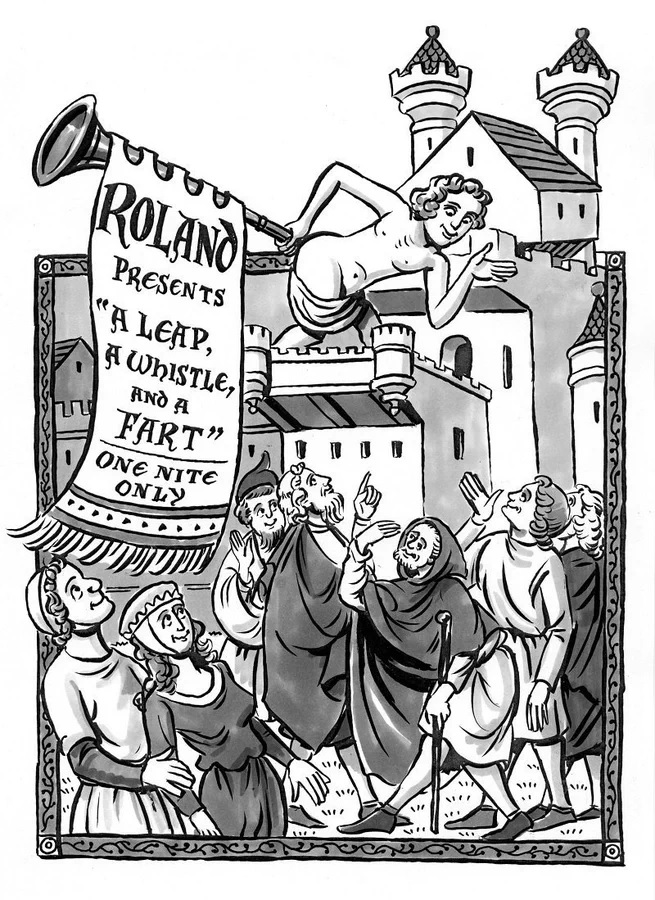When farting was a job
At the request of King Henry II, a man who was famed for his ability to fart, received a manor in Suffolk and a huge 30 acres (12 hectares) of land. In the latter half of the 12th century, Roland le Petour, also known as Roulandus le Fartere, granted land, as was customary for the king’s favorite entertainers. He was presumably a jester who had to jump, whistle, and fart for the amusement of the assembled guests on big occasions.
According to this article, the historical reference can be found in the English Liber Feodorum (Book of Fees), which was written in the 13th century and documents feudal landholdings in England or lands that were actually held directly by individuals from the crown. It was well documented that Roland had to execute “saltum, siffletum, pettum” (a jump, a whistle, and a fart). He was obviously a typical fool, using his fart as his stock in trade for this incredibly big parcel of land and Henry’s approval.
He received a serjeanty, which is a term used to denote a type of feudal tenure that was contingent upon performing a specific personal service to the monarch other than knightly service. This is how serjeanty allowed Roland to acquire his home and estates.
From the translated version of Liber Feodorum: “The serjeanty, which formerly was held by Roland the Farter in Hemingston in the county of Suffolk, for which he was obliged to perform every year on the birthday of our Lord before his master the king, one jump, a whistle, and one fart, was alienated in accordance with these specific requirements”.
Valerie Allen, who gave a thorough historical account of Roland in her 2007 book, On Farting: Language and Laughter in the Middle Ages, discovered that Roland’s historical record is quite scant. Her investigation, which was based on fee ledgers, suggested that Roland may have originally worked for King Henry I before moving on to King Henry II. Roland had already been dismissed when Henry III arrived because the king considered his talent and service quite “indecent”. Roland was forced to give up his estate as a result.
It was improbable that Roland would have survived to see the end of two kings’ reigns and a third’s. He was most certainly a beloved and wanted figure, and his tale has brought a lot of joy and entertainment.
Due to the fact that flatulence was common to all social classes, no one was immune from the fear of having uncontrollable wind escape from their bodies. Allen claimed that there was a second layer to the situation and that there was more going on than first appeared.
“Gas is the product of decomposition, so morally, theologically, a lot of the writers in the Middle Ages saw it as the mark of death. There was a lot of moralization about farts and shit, that they are the living daily reminder that we are going to die and that’s all we are, we are mortal, and sinful as well”, she said.
Unexpectedly, Roland did not occupy this singular position in society’s history as some sort of historical oddity. For instance, during the medieval era in Ireland, this vocation was very common. The term “bruigedoire” or “farters,” refers to people who had court retainers, according to an Irish tradition from the eighth century. A table at the banquet hall of the High King of Ireland reputedly belonged to a group of Irish farters known as the braigetori, who were Roland’s contemporaries.
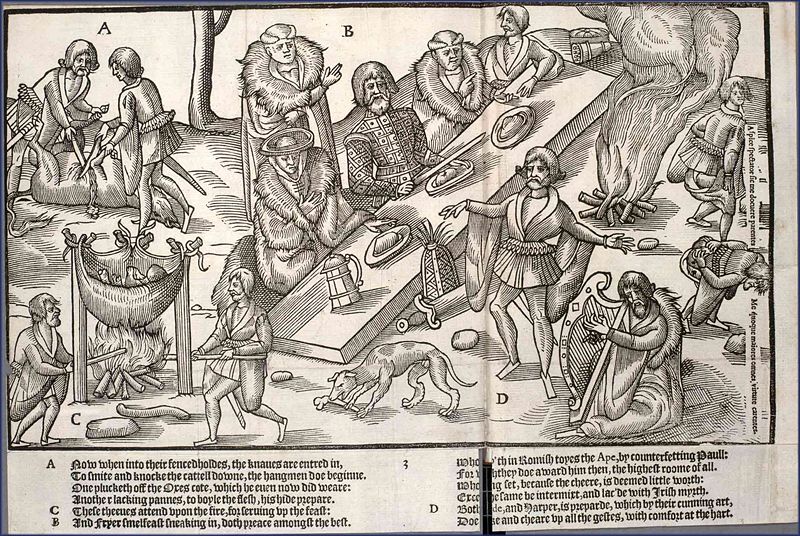
“Not all performing farters were land-owners”, cautions Allen, but there was an established, if not profession, at least specialty. “I should think that for festive occasions this kind of entertainment was central and necessary and must have involved high degrees of skills, a whole range of performance tricks”, she says, “They’re like circus performers”.
The Farting God, also known as Matshishkapeu, is a very strong spirit in the Innus mythology of Canada. He is known as a legendary shaman with the power to instantly cause others gastrointestinal pain or make them feel better. He is even more powerful than the fabled Caribou Master, whom Matshishkapeu punished with excruciating constipation before offering him perfect relief after the Caribou Master begged for forgiveness.
Saint Augustine of Hippo (354-430 AD), as well, mentioned certain performers who, in his words, had “such command of their bowels, that they can break wind continuously at will, so as to produce the effect of singing… a number of people produce at will such musical sounds from their behind (without any stink) that they seem to be singing from the region”.
There is even evidence of flatulist performers from Japan’s Edo era (the 1600s and the 1700s). Misemonos, street performers in Tokyo, were people similar to those in “freak shows”. Kirifuri-hanasaki-otoko was a well-known misemono performer. He is known to have taken in large amounts of air and modulatedly released it in flatulent arias as early as 1774. Farting men, also known as heppiri otoko, were said to have entertained the aristocracy with fart dances during Japan’s Kamakura Era (1185–1333).
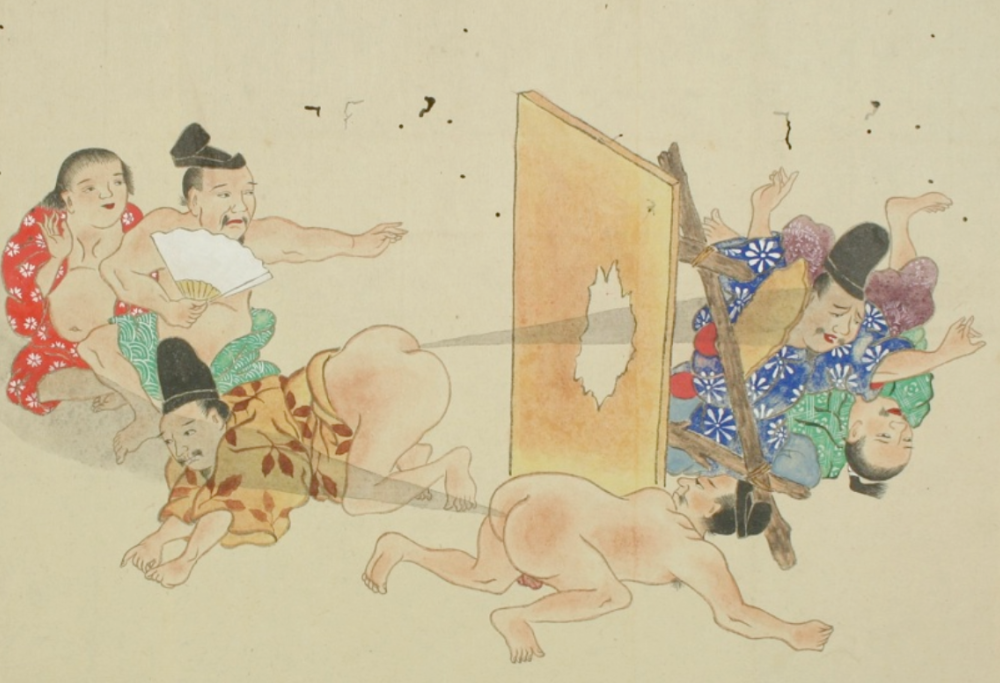
Le Petomane, a famous farter and entertainer in France during the late 19th and early 20th centuries, is credited with reviving the flatulence trend in modern times. He came up with a method where he would breathe in through his mouth and exhale through his rectus muscle. He had the ability to blow out candles and smoke cigarettes with his bottom. He could also take water up his rectum and expel it over long distances.
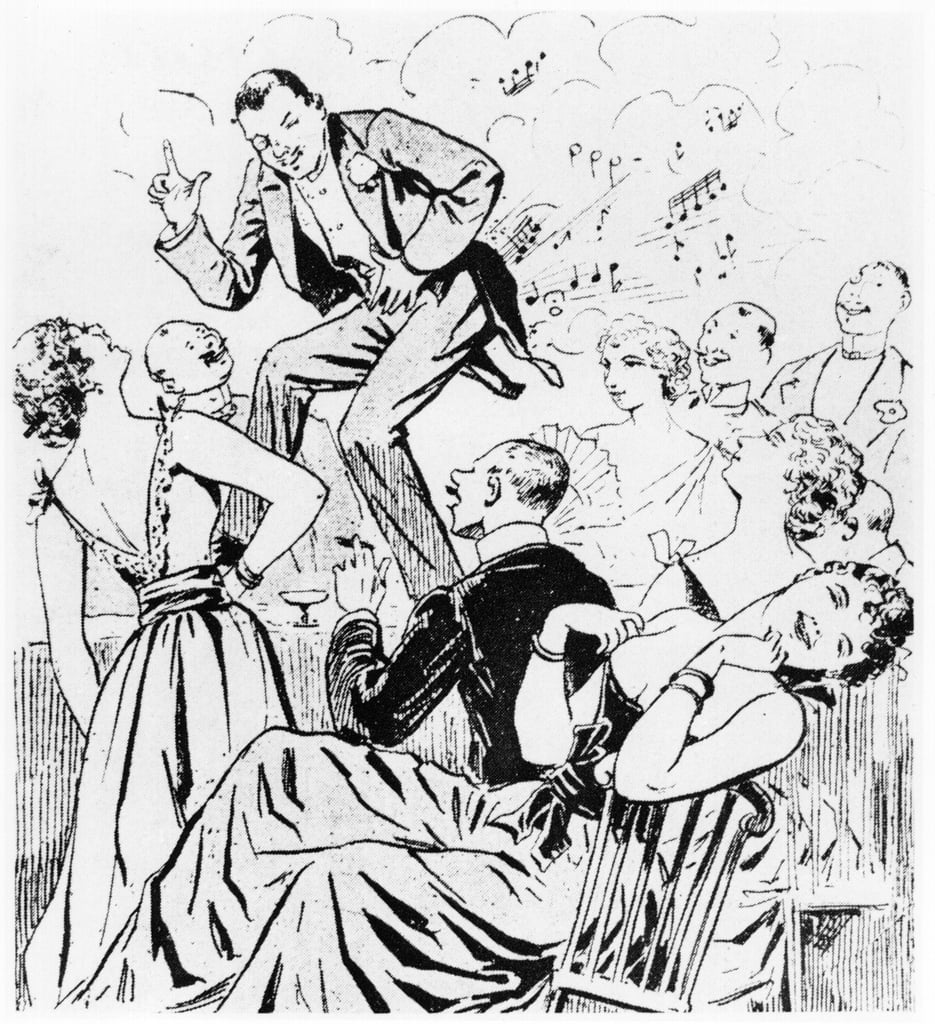
“He dressed in a tuxedo and announced each sound as if he were presenting a music solo. Of course, the incongruence of a dignified gentleman letting farts only added to the humor”, wrote Jim Dawson, music journalist, and self-titled fartologist.
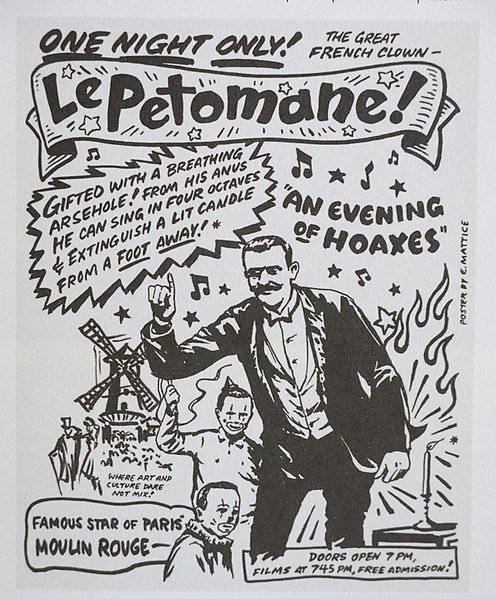
Even though flatulence has fallen out of favor lately, some performers are still making an effort to carry on the tradition, especially in the age of the internet and video-sharing websites like YouTube. Yet it’s safe to say that no one can compete with Roland the Farter’s ‘airial’ skills.

